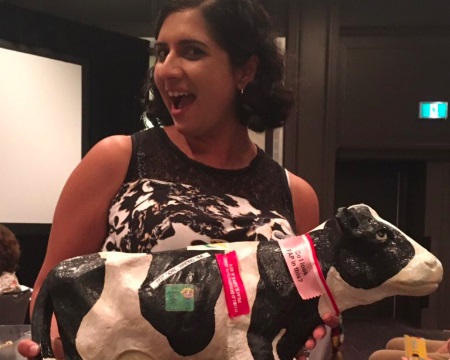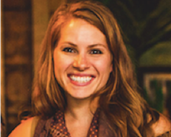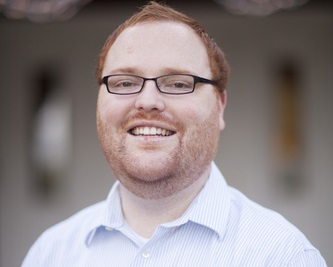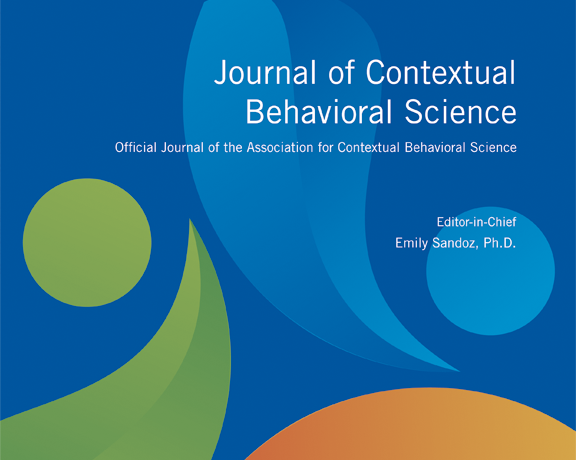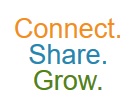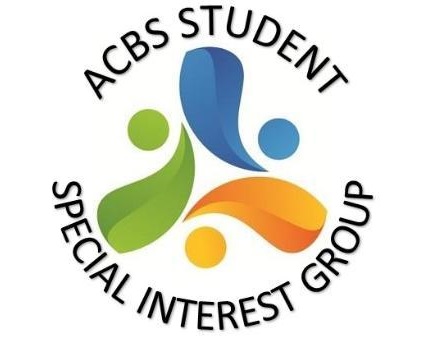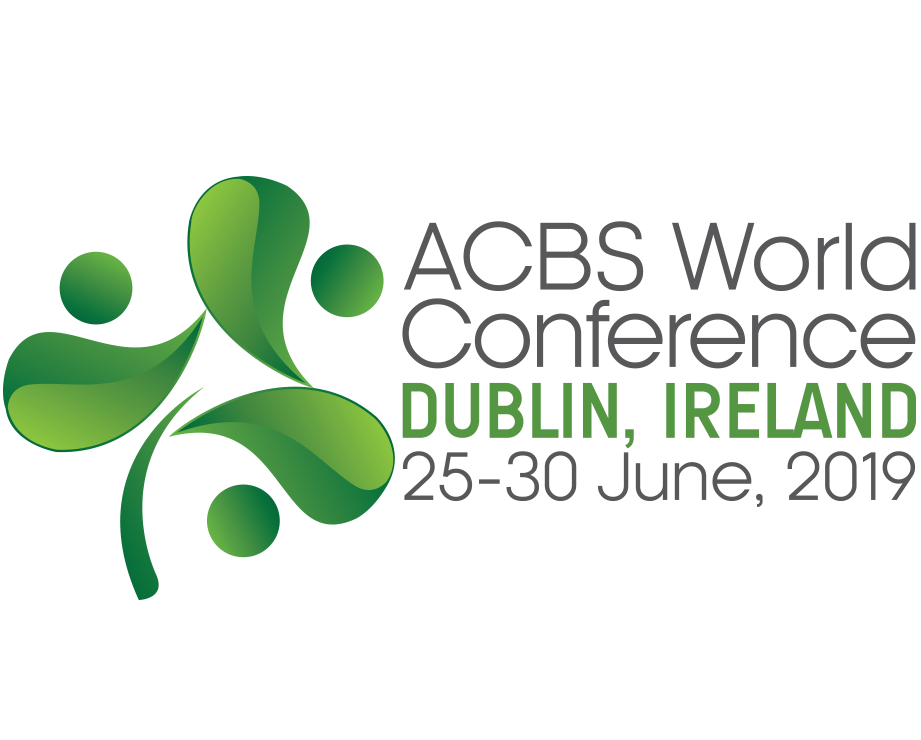2018 Student SIG Newsletter
2018 Student SIG Newsletter|
ACBS Student NewsletterDecember 2018 |
|||
Greetings from the Student SIG Co-Chairs Sonia Singh and Maureen Satyshur
Welcome to the inaugural ACBS Student Newsletter! With over 1,700 ACBS student members worldwide, we decided to showcase what the ACBS Student Special Interest Group (SIG) has to offer and to highlight some of the interesting things that students are doing. There are many ways that students can participate in ACBS, such as the JCBS Student Editorial Board, scholarships to the World Conference, and being a reviewer for student awards. We hope you enjoy reading the Student Newsletter! - Sonia and Mo |
|||
Interview with ACBS member Kim Gushanas
We love to learn about what the ACBS student members are doing. For our inaugural student newsletter, we interviewed Kim Gushanas, a Doctoral Candidate in school psychology from the University of Texas at Austin and currently an Intern in Integrated Pediatric Psychology with the Texas Child Study Center at Dell Children's Hospital in Austin, Texas, USA. |
|||
Graduate Student Publications
We are proud to showcase our students publishing their work and contributing to the literature of CBS. Congratulations to Eric Lee, a 5th year student at Utah State University, and Leah Bogusch, a 4th year student at Bowling Green State University, for publishing articles about ACT in the journals Behavior Modification and Clinical Case Studies. You can read more about the artilces here. |
|||
Student Spotlight Award
The ACBS Student Spotlight Program highlights students who are doing important work in the CBS community, whether for research, clinical, and/or volunteer-humanitarian efforts. This program is a great way to highlight their achievements and let the ACBS community know about important work students are doing. The spotlighted students will get 30% off the ACBS World Conference student registration fee. Applications will be accepted from March 1, 2019 to March 29, 2019. |
|||
JCBS Student Editorial Board
The Journal of Contextual Behavioral Science plans to seat a Student Editorial Board (SEB), comprised of graduate students interested in CBS. Once appointed, SEB members will review JCBS articles, gaining invaluable experience in the peer-review process and helping to steer the content of JCBS. |
|||
Internships and Post-Doc Fellowships on website
Did you know that ACBS allows its members to post information about their institutions' CBS-friendly Pre-Doctoral Internships and Post-Doctoral Fellowships. You can see the full list of internships and fellowships on the ACBS website. If you know of a CBS-friendly internship or fellowship, please email the information to [email protected]. |
|||
Submit Your Dissertations to Be Put on the ACBS Website
Do you have a CBS dissertation? Then please email your dissertation and citation to [email protected] and we will post it in the list of publications on the ACBS website. We know you put a lot of work into your dissertation, so we encourage you to share your dissertation so that other ACBS members may read it! |
|||
Be a Reviewer for the ACBS Student SIG Awards Committee!
We are currently seeking motivated students to review the awards for the ACBS Student SIG. This would require a time commitment of approximately one hour in the fall semester and spring semester. You would be asked to review a small number of award submissions and grade them based on a rubric. This is also a cool CV line and additive service to ACBS and the Student SIG. Please email Sonia Singh at [email protected] to express interest. |
|||
ACBS Annual World Conference 17: Dublin, Ireland
25-30 June, 2019 |
|||
Call for SubmissionsWe are excited to invite you to join us in Dublin, Ireland for the 17th Annual World Conference of the Association for Contextual Behavioral Science (ACBS) 25-30 June, 2019. We are accepting submissions for symposia, papers, panels, workshops, Ignite sessions, and posters. Oral Presentation deadline is February 15, 2019. Poster deadline is March 20, 2019. Please click here for more information. |
|||
Scholarships to the ACBS World Conference are now open- Diversity Conference Scholarships - Deadline is February 1, 2019 |
|||
ACBS Junior Investigator Poster AwardThe purpose of this award is to recognize and help develop junior investigators conducting research in Contextual Behavioral Science and who are presenting the results of this research at the ACBS annual world conference. Eligible candidates for this award include undergraduates, graduate students, and post-doctoral fellows presenting first-authored posters at the annual world conference. To be considered for the award, please self-nominate by indicating your interest when you submit your poster for the ACBS World Conference. Read more about the award here. |
|||
Asher Dissertation Award: Application Deadline is February 1, 2019The Asher Dissertation Awards will be given to two students based on their doctoral dissertation proposal related to the use of Contextual Behavioral Science with children/adolescents. Accompanying this honor will be a monetary award of $750 USD and $250 USD to be used in support of research (e.g., to pay participants, to purchase testing equipment) and/or to facilitate travel to the ACBS annual conference. The deadline to apply is February 1, 2019. |
|||
Stay in Touch with Facebook, Twitter, and the Listserv
The Student Special Interest Group (SIG) has three different ways to stay in touch! You can follow us on Facebook, Twitter, and the Student SIG listserv. These are three fun ways to stay informed about what the ACBS Student SIG is doing throughout the year. |
|||
Graduate Student Publications
Graduate Student PublicationsEric Lee is a 5th year student at Utah State University working with Mike Twohig. This study is a randomized controlled trial utilizing a 10-session standalone ACT protocol for trichotillomania. This study provides evidence that ACT alone is an effective treatment for people with trichotillomania.
Lee, E. B., Homan, K. J., Morrison, K. L., Ong, C. W., Levin, M. E., & Twohig, M. P. (2018). Acceptance and commitment therapy for trichotillomania: A randomized controlled trial of adults and adolescents. Behavior modification, 0145445518794366.
Abstract
The purpose of this study was to examine acceptance and commitment therapy (ACT) as a standalone treatment for trichotillomania in a randomized controlled trial of adults and adolescents. Participants consisted of a community sample of treatment seeking adults and adolescents with trichotillomania. Of the eligible 39 participants randomized into treatment and waitlist groups, 25 completed treatment and were included in the final analysis. Treatment consisted of a 10-session ACT protocol. Multiple mixed models repeated measures analyses were utilized to evaluate changes in trichotillomania symptom severity, daily number of hairs pulled and urges experienced, and experiential avoidance from pretreatment to posttreatment. Findings indicated significant changes in symptom severity and daily hairs pulled, but not daily urges experienced or psychological flexibility. However, psychological flexibility saw a 24.5% decrease in the treatment group and reduced from clinical to subclinical levels on average. This study suggests that ACT alone is an effective treatment for adults and adolescents with trichotillomania. Outcomes appear to be similar to trials that combined ACT and habit reversal training (HRT).
Leah Bogusch is a 4th year student at Bowling Green State University. This study is a case study in which the authors utilize ACT as a treatment for a client with emetophobia (phobia of vomiting). The results indicate symptom improvement from pre-treatment, post-treatment, 6-month follow up, and 12-month follow up.
Bogusch, L. M., Moeller, M. T., & O’Brien, W. H. (2018). Case Study of Acceptance and Commitment Therapy and Functional Analysis for Emetophobia. Clinical Case Studies, 17(2), 77-90.
Abstract
Acceptance and Commitment Therapy (ACT) is a third-wave behavioral therapy that is an empirically supported treatment for various mental health concerns. ACT has been found to be efficacious for treating different types of anxiety disorders. This case study presents the conceptualization (functional analysis), treatment (ACT), and treatment outcomes of a client who presented with emetophobia, a phobia of vomiting, complicated by a metabolic disorder. Measures of emetophobia symptoms, mindfulness, cognitive fusion, thought control strategies, and believability of anxious thoughts and feelings, were collected at pretreatment, posttreatment, 6-month follow-up, and 12-month follow-up. The Reliable Change Index was used to evaluate changes across time. Large and clinically significant decreases on all measures were observed at posttreatment. At 12-month follow-up, improvements were maintained on all measures except the Reappraisal subscale of the Thought Control scale. The implications of this study are discussed, and recommendations are made for clinicians using ACT for the treatment of emetophobia.
Interview with ACBS member Kim Gushanas
Interview with ACBS member Kim Gushanas
Who are you?
Kim Gushanas, MA, Doctoral Candidate in school psychology from the University of Texas at Austin and currently an Intern in Integrated Pediatric Psychology with the Texas Child Study Center at Dell Children's Hospital in Austin, TX. When I was a child I desperately wanted to grow up to be a dolphin trainer... and in my first graduate school class, I knew I had made it when we read a book by Karen Pryor- a behavioral psychologist and former dolphin trainer!!
What got you started in the field?
I actually always knew I would be in the field somehow. From a very young age, I was fascinated by what made people who they are- I read books about different cultures, religions, foods, folklore, evolution... and then I took my first psychology class in high school and knew that I had found where I was meant to be. Something about giving people a space to tell (and retell) their story felt like home to me.
How did you get connected to the ACBS community?
I had an amazing graduate professor in my clinical master's program at the University of Houston Clear Lake- Dub Norwood. He decided one semester to start teaching us about ACT and it blew me away! I had some practice in mindfulness but hadn't yet learned anything that felt as honest and truthful to the human experience. It was very inspiring, and although I didn't understand half of what we were learning, it stuck with me.
How has the ACBS community supported you as a student?
As a professional, it's really been a resource for me throughout my training and now with my current research and dissertation. I have relied on the website often to brainstorm when I get stuck with a client or to seek consultation/supervision when I feel out of touch. There aren't many who practice within the ACBS community in Austin, so it's really important to have such a great resource to draw from. As an individual, I have grown so much through my study and practice. I have never felt more connected to others than when I am attending to my values. It has really shaped my life in incredible ways to take what I have learned and apply it to myself and my career.
What would you like to see from ACBS as we move forward in working to reduce suffering in the world?
There are two things... As a pediatric psychology student working in primary and integrated care settings, I would love to see more research focusing on brief interventions with trauma populations, especially youth and their families. In Texas, the majority of individuals I work with are first-generation Americans or immigrants who have suffered significant trauma throughout their short lives. And unfortunately, this population is growing. I think this is definitely an area of growth for our community.
Second, I am a member of the Women's SIG, and I have seen so much beautiful honesty and stretching of the limits in that group in the last year. The women there are using our collective voice to show up for each other, and to help remind those who are listening what it means to truly value another for who and what they are. I hope that we can use that strength to disseminate the same level of compassion in a way that is accessible and inclusive to everyone.
What are the most important values that you bring to your work?
Self-awareness as a clinician and trying to remember to check myself during and between sessions. Respect- for myself, my clients, my colleagues, my community, and really humanity as a whole- especially when our values don't align. Everyone deserves to be heard.
What's next for you?
First, finish collecting data for my dissertation- I am looking at the transmission of anxiety from parent to child by studying parental experiential avoidance as a mediator in the accommodation of children with OCD. If anyone knows of parents who are interested in participating- please send them my way for a screening: rebrand.ly/ocdstudy
Then, Post-Doc, hopefully in a position where I am able to focus on pediatric trauma, maladjustment, and anxiety in an integrated setting.

